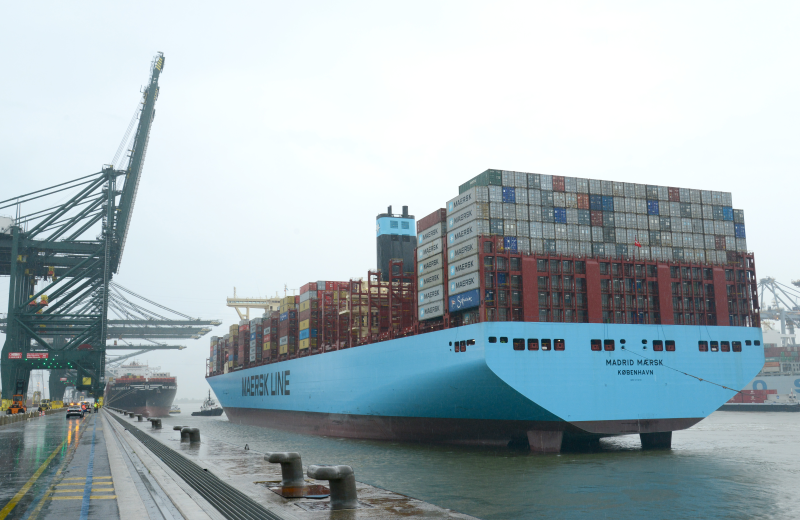[vc_row][vc_column][vc_column_text]
Maersk Line has found out that India’s export-import (EXIM) container trade have slowed down in the first quarter of the 2017 calendar year (which is the Q4 of FY16-17). India’s imports and exports grew 7 per cent in the January-March quarter against 10 per cent in the first quarter of previous calendar year, the report released by the shipping line said.
The slowdown is mainly attributed to a short-term decline in imports to India. The import volumes declined to 5 per cent against 13 per cent in Q1 of the calendar 2016. However, the exports from India have registered a growth of 8 per cent – same as in the previous year, and overall India’s growth performance has been stronger than the global trade, which in the past two quarters has increased to around 4-5 per cent.
Demonetisation, pre-GST
Maersk report notes that imports of products such as furniture, electronics and automobiles from China, the US and Germany decreased owing to evolving economic reforms: first, demonetisation, and then — GST. For example, imports from North America registered a negative growth of 9 per cent as compared to 29 per cent growth in the same period last year. Domestic demand for wastepaper and other waste material imported for further recycling declined mainly due to demonetisation.
“These commodities are cash sensitive and have been impacted by demonetisation, effects of which were felt in the first quarter of the year,” Franck Dedenis, Head of West Central Asia Trades at Maersk Line revealed.
According to him, looking at the figures of April and May, the demonetisation effect seems to be over. At the same time, with GST rollout around the corner, a lot of people have taken a wait and watch approach towards making high-end purchases on certain consumer products. While for those goods and items for which tax become higher under new tax regime the imports might decrease, the real impact can only be assessed seen after a quarter or two.
Eyeing growth
Maersk expects Indian export-import trade to pick up pace in the next quarter. Keeping growth prospects in mind, Maersk Line has been increasing its presence in India both through establishing new offices and inland acceptance point and through various technological innovations to make doing business easier for exporters and importers.
According to Dedenis, in last four years Maersk Line’s India business grew 45-50 per cent while its market share increased from 17 per cent to around 20 per cent. From 2016 to 2020 the shipping line is planning to grow business in India by anther 40 per cent, he added.
Globally, A.P. Moller – Maersk delivered an underlying profit of $201 million in the first quarter of 2017 calendar, 6 per cent down from the same quarter of the previous year. Company’s revenue increased by 5 per cent to $9 billion as a result of revenue growth in Maersk Line and Maersk Oil, the company announced earlier in May.
[/vc_column_text][/vc_column][/vc_row]







